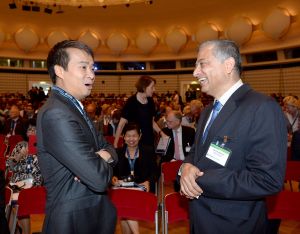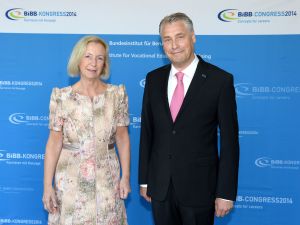
The UNESCO-UNEVOC International Centre: Who We Are | What We Do | Working With Us | Get in Touch
The UNEVOC Network: Learn About the Network | UNEVOC Network Directory
For Members: UNEVOC Centre Dashboard
Thematic Areas: Inclusion and Youth | Digital Transformation | Private Sector Engagement | SDGs and Greening TVET
Our Key Programmes & Projects: BILT: Bridging Innovation and Learning in TVET | Building TVET resilience | TVET Leadership Programme | WYSD: World Youth Skills Day
Past Activities: COVID-19 response | i-hubs project | TVET Global Forums | Virtual Conferences | YEM Knowledge Portal
Our Services & Resources: Publications | TVET Forum | TVET Country Profiles | TVETipedia Glossary | Innovative and Promising Practices | Toolkits for TVET Providers | Entrepreneurial Learning Guide
Events: Major TVET Events | UNEVOC Network News
18 and 19 September 2014, Berlin, Germany

Participants in the conference confirmed that there is a great need to make TVET more attractive and that one key to attractiveness lies in the provision of open onward pathways to higher education and lifelong learning.
The German Minister of Education and Research (BMBF), Johanna Wanka, emphasized in her opening address that SMEs will be needing 200,000 technically and managerially qualified young people to succeed retiring entrepreneurs and top executives. To meet this need, TVET will have to become more flexible and integrate higher education.
